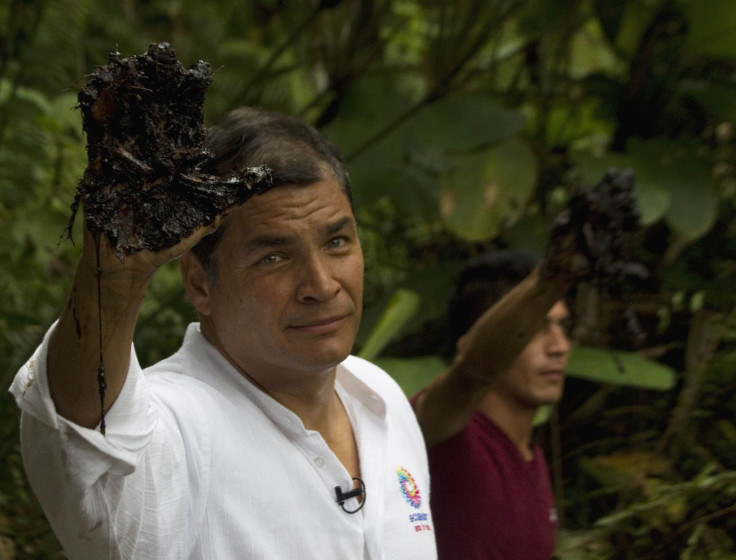Indigenous Population Agree To Oil Drilling In Ecuador’s Protected Area Yasuní

After a month of irate protests from Ecuadorian society, the indigenous community inside the Yasuní protected area in the Amazon jungle agreed to have the government allow international oil companies drill in their homeland. In exchange, the Waorani -- as the indigenous group is known -- are asking for financial help from the government to fund education, healthcare and land rights.
The agreement was signed in Guiyero, a town in the heart of Yasuní. President Rafael Correa met with 500 members of the Waorani community, who acted in representation of the 48 tribes that form the indigenous group.
This deal puts an end to a month of protests all over the country, which condemned the government’s attitude of complying with international oil companies in detriment of its own people. Correa replied that the country needed the investment, since a campaign to get the international community to fund Ecuador and allow it to not drill in Yasuní failed, turning up less than 1 percent of the expected amount.
The government said it was disappointed to have to resort to drilling to raise money, but that it ensured the most stringent environmental procedures would be followed.
According to estimates by the United Nations Development Program, Ecuador holds crude oil reserves worth more than $7.2 billion at today's prices.
Correa’s promises were heard, and a group of leaders from the Waorani community approved the works planned for their land. They traveled to the capital Quito last week, and they agreed with the government that the investment was much needed. “We want development, we want to advance. We need healthcare, schools, roads, drinking water,” said Jofre Poma, mayor of Lago Agrio, a town on the border with Colombia.
At the same time, the biodiversity commission of the Ecuadorian national assembly approved a report declaring Yasuní a national interest. The report will be voted on by Congress next week.
The Yasuní agreement happened as Ecuador is elbow deep in launching a campaign to show how much oil giant Chevron (NYSE:CVX) harmed the Amazon in the 1980s and 90s. Correa himself visited one of the old oil sites on Tuesday, and dipped his hand in the toxic waste, which is still there although Chevron left Ecuador in 1992.
Ecuador and Chevron have been locked in complex legal proceedings since 1993 over the environmental damages for over two decades, in a marathon of accusations that has no end in sight. Chevron has announced its intention of dropping a $60 billion damages claim against Ecuador, which it had filed in response to a verdict awarding Ecuador $19 billion in damages.
© Copyright IBTimes 2025. All rights reserved.





















